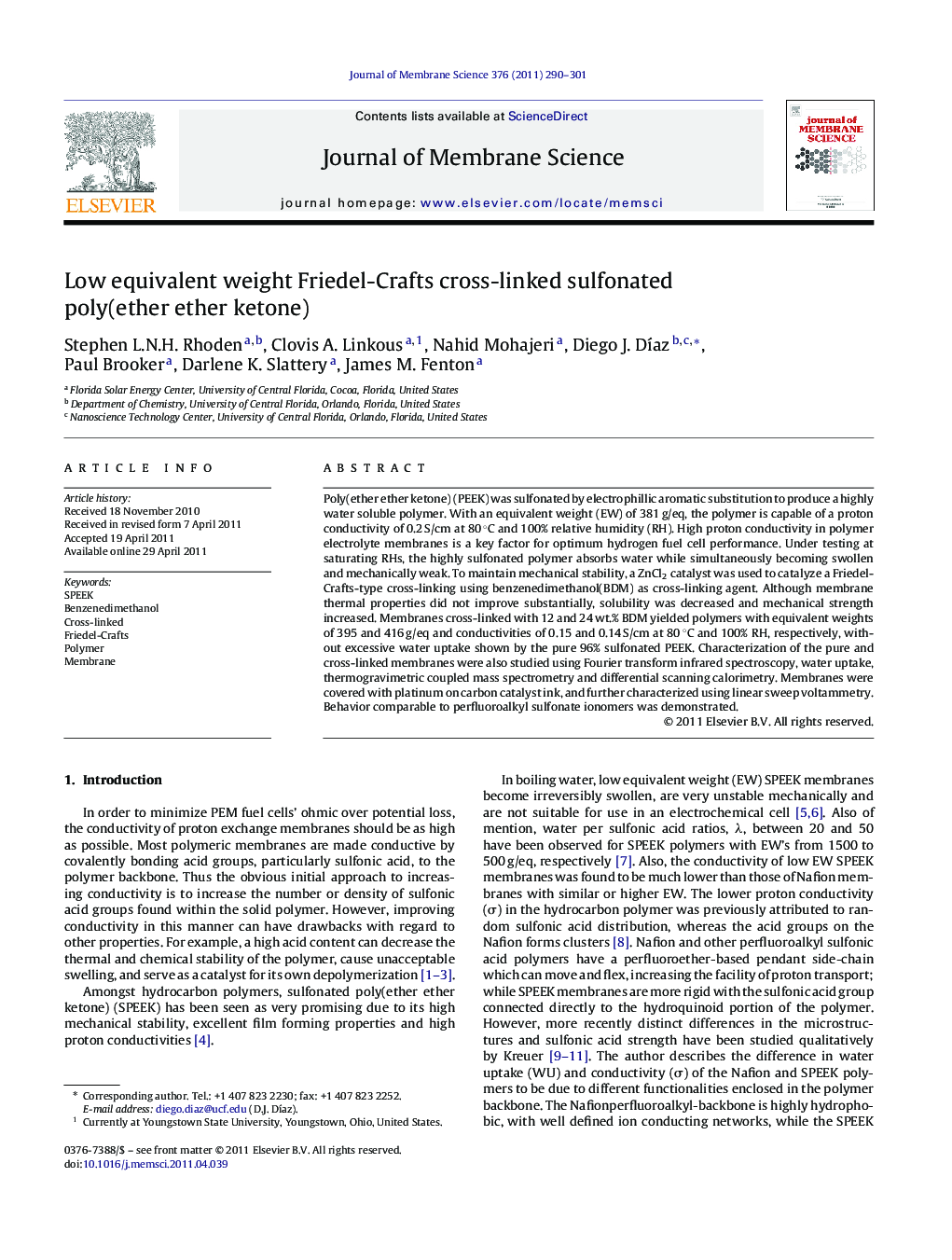| Article ID | Journal | Published Year | Pages | File Type |
|---|---|---|---|---|
| 635737 | Journal of Membrane Science | 2011 | 12 Pages |
Poly(ether ether ketone) (PEEK) was sulfonated by electrophillic aromatic substitution to produce a highly water soluble polymer. With an equivalent weight (EW) of 381 g/eq, the polymer is capable of a proton conductivity of 0.2 S/cm at 80 °C and 100% relative humidity (RH). High proton conductivity in polymer electrolyte membranes is a key factor for optimum hydrogen fuel cell performance. Under testing at saturating RHs, the highly sulfonated polymer absorbs water while simultaneously becoming swollen and mechanically weak. To maintain mechanical stability, a ZnCl2 catalyst was used to catalyze a Friedel-Crafts-type cross-linking using benzenedimethanol(BDM) as cross-linking agent. Although membrane thermal properties did not improve substantially, solubility was decreased and mechanical strength increased. Membranes cross-linked with 12 and 24 wt.% BDM yielded polymers with equivalent weights of 395 and 416 g/eq and conductivities of 0.15 and 0.14 S/cm at 80 °C and 100% RH, respectively, without excessive water uptake shown by the pure 96% sulfonated PEEK. Characterization of the pure and cross-linked membranes were also studied using Fourier transform infrared spectroscopy, water uptake, thermogravimetric coupled mass spectrometry and differential scanning calorimetry. Membranes were covered with platinum on carbon catalyst ink, and further characterized using linear sweep voltammetry. Behavior comparable to perfluoroalkyl sulfonate ionomers was demonstrated.
► SPEEK cross-linking was done using zinc chloride and benzenedimethanol. ► The cross-linking caused a minor decrease in ion exchange capacity. ► Fuel cell performance of the cross-linked membranes was done. ► Cross-linked SPEEK is a good candidate for proton exchange membrane.
